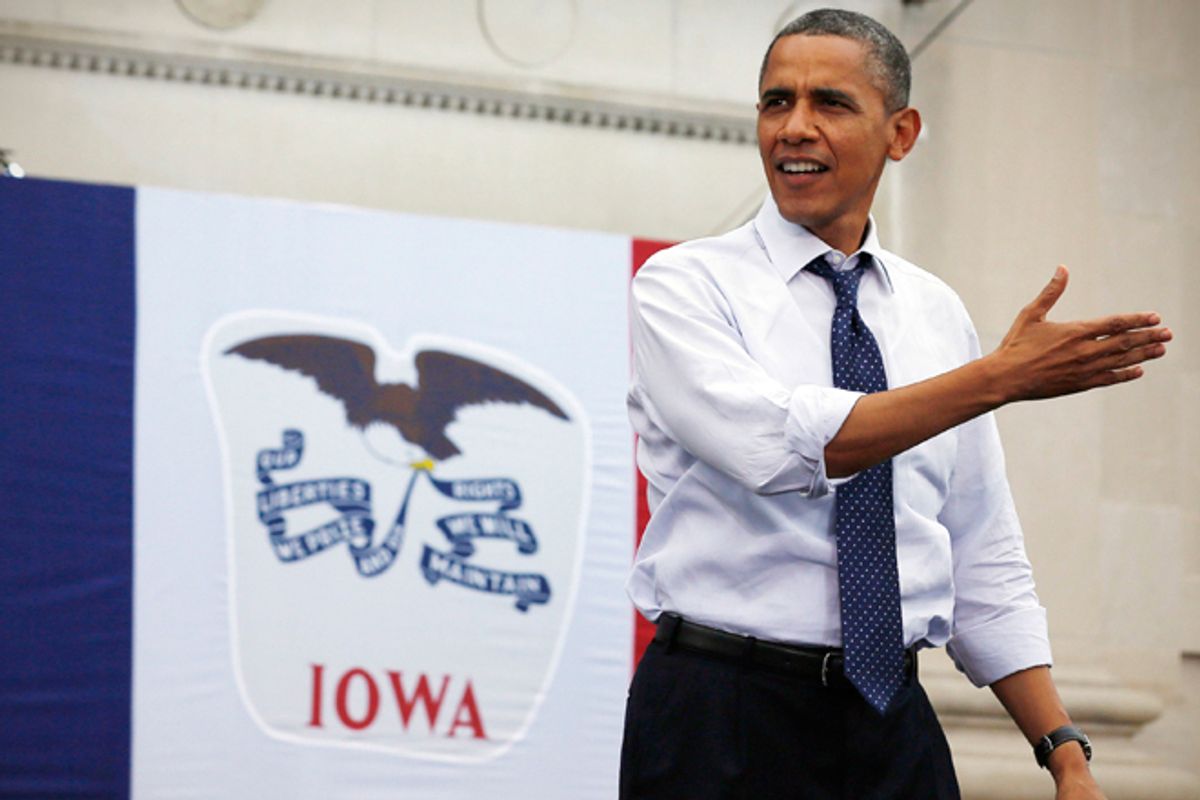Since 2009, report Bloomberg's Tim Jones and Elizabeth Campbell, "the top 1 percent of Americans captured 93 percent of real income growth, compared with 65 percent during the recovery from the 2001 recession, according to an analysis by Emmanuel Saez, an economist at the University of California at Berkeley."
If you care about growing income inequality in the United States, you may already be familiar with that statistic. But the citation in Bloomberg comes in the context of a fascinating, in-depth investigation into the rising gap between the rich and poor in Iowa. We're not talking Wall Street versus Main Street. We're talking farmers lucky enough to benefit from vastly appreciating land values, versus everybody else.
That's a big deal. Iowa is traditionally considered one of the less-stratified states in the country. Not anymore:
Farmland auctions in Iowa now resemble a dressed-down spectator sport with Sotheby’s prices, a reflection of the yawning divide that has opened in some of the most bountiful stretches of rural America. Farm earnings in the state and throughout the U.S. increased at eight times the rate of nonfarm wages from 2008 to 2011, fueling resentment and straining the social fabric of places with deep egalitarian roots.
“Iowa had had historically low levels of inequality, but now it is skyrocketing,” said David Peters, a sociologist at Iowa State University in Ames who specializes in income disparity. “Today you have far fewer farmers and a small number earning larger and larger incomes. It doesn’t spread through the economy like it used to.”
The reason land values are appreciating is directly connected to rising prices for corn and soybeans, due to surging global demand. There's a bitter irony here: In the nation's breadbasket, demand for food stamps is rising at twice that national rate. There's another familiar story here: globalization. Because even as the farmers cash in on grain demand from around the world, factories are closing, under pressure from foreign competition.
Iowa’s income gap has widened, as it has in other states, after the loss of good-paying industrial jobs. A Maytag appliance plant owned by Whirlpool Corp. (WHR) closed in Newton in 2007. Electrolux AB shut two factories last year in Webster City and Jefferson, an hour apart. The lost factory jobs have been replaced by low-skilled service positions, often part-time and without benefits.
For most of this election year, President Obama has enjoyed a strong polling lead in Iowa, traditionally considered an important swing state. It's worth wondering whether his success, so far, might have something to do with the rich-getting-richer-while-the-poor-apply-for-food-stamps dynamic. When a flat state starts getting some bumpy inequality, voters may end up not feeling well disposed to the candidate who best represents the 1 percent.



Shares